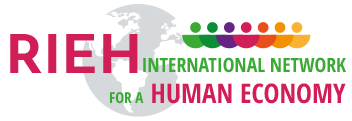 Toutes les actualités (EN)
Toutes les actualités (EN) 
"In a few months, I will be able to say that I saw born, live and work for 50 years, Villa El Salvador from its foundation on mats to the construction of the towers of Villa Panamericana. In addition, as a teacher, I worked there for many years. I have had dozens of opportunities to live in the mountains and explore the Amazon. So, in the greatest simplicity, living from the essential, I mixed with this population to which I am attached, sharing the lifestyle of the popular sectors, the relationships between families, their culture and some of their personal tastes .
I write these lines in this perspective without any judgment. I'm just trying to share this thought, thinking only of the necessary victory against the virus."
Reflections on information campaigns about the epidemic by Michel Azcueta.
Michel Azcueta lives in Villa el Salvador in the suburbs of Lima, Peru. He actively participated in the June 2018 international meeting held at Le Mené, France.
He sent us a text denouncing the inadequacy of the instructions for preventing the spread of coronavirus to the living conditions of the majority of the Peruvian population. He calls for the rules for fighting the epidemic to be drawn up with the population, as was successfully done in Villa el Salvador to defeat cholera. This is one of the principles of human economy: "working with the people”.
We have been suffering for more than four weeks from the outbreak of the now famous coronavirus. Daily activities, conversations, news, images of streets and people, statistical tables are practically the same in the media of the different countries of the world. In Peru, we cannot escape it. But it seems to me that, although everything is the same, neither the senders and makers of these messages nor, of course, the recipients are the same.
Let us look at some examples from those weeks in Peru, messages that we all know.
1. The first one, the most broadcast news item at all hours: "WASH HANDS FREQUENTLY ALL DAY FOR AT LEAST 30 SECONDS", in a country where less than 50% of households have water at home...!!!!
How many of them have large, clean and separate towels for each member of the family?
2. "When you come backhome, leave the shoes outside, put on the clothes you used in the washing machine at 60 degrees and change your clothes. We think we're dreaming! How many Peruvians have two or three pairs of shoes ready? How many have a separate place at the entrance of the house? How many people in Peru have a washing machine or electricity?
3. "IT'S A GOOD IDEA THAT ONLY ONE PERSON PER FAMILY GOES OUT TO DO THE SHOPPING! "By God... !!! Which families are they talking about? They don't know Peru? They don't know the immense daily work of mothers who have to do everything at the same time and who don't have another person to entrust their children to do their work? Don't they know the times when most men, husbands or not, come home? Are they unaware of the endearing, useful but dangerous work that many adolescents do in middle-class homes?
4. "KEEP ONE AND A HALF METRE OR TWO METRES DISTANCE IN THE QUEUES" Very good recommendation ... but it is wrong to say that those who were going to receive the grant of 380 cents they really need, woke up, left before 5 o'clock in the morning, and were fighting in front of the counters. Didn't they know that there are houses where there are only women with children and they have to break the rule to kill the hunger? We could go on like that.
I am afraid that beyond the obvious efforts of President Vizcarra's government team in the fight against coronavirus, the vast majority of the population of Peru will be really affected by the message. Only a small percentage of the urban population will be reached. I have just read in the magazine SOMOS d'El Comercio (dated April 11th) this innocent, charming and discreet sentence: "We have already realized that we can live without luxury, without cars, without designer clothes, without a wallet collection..." written so naturally, even with the best intentions in the world, but... again from the experience of a minority of the population of Peru.
I believe that measures of social isolation and other norms must be differentiated for both the countryside and the city, and that President Vizcarra's team must study the types of social achievements and the production methods in use in rural areas.
The epidemic exists and it must be fought with all scientific, medical, economic, social, police and military methods wherever necessary, but, in my opinion, without the understanding of the majority of the population and without their organised participation, we will take much longer time to defeat it. I am thinking particularly of rural and Amazonian areas and popular urban sectors.
This was done by the people and the community of Villa El Salvador, when the city was the first to defeat cholera throughout the country: with organization, unity, solidarity, leadership and discipline. It is true that we are in another era and that the coronavirus is not cholera, but I am convinced that these values are not only valid but absolutely necessary at this time in Peru.
We Peruvians can do this.
Ajouter un commentaire










